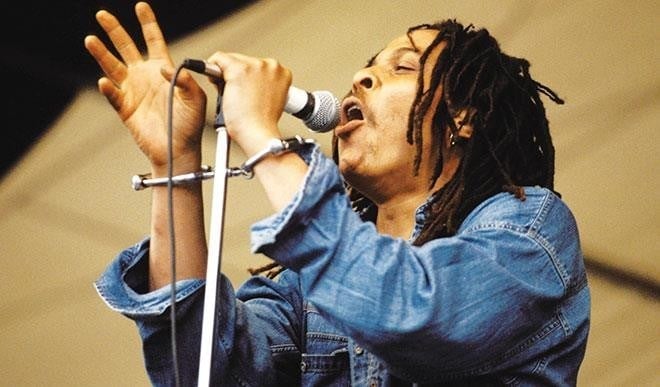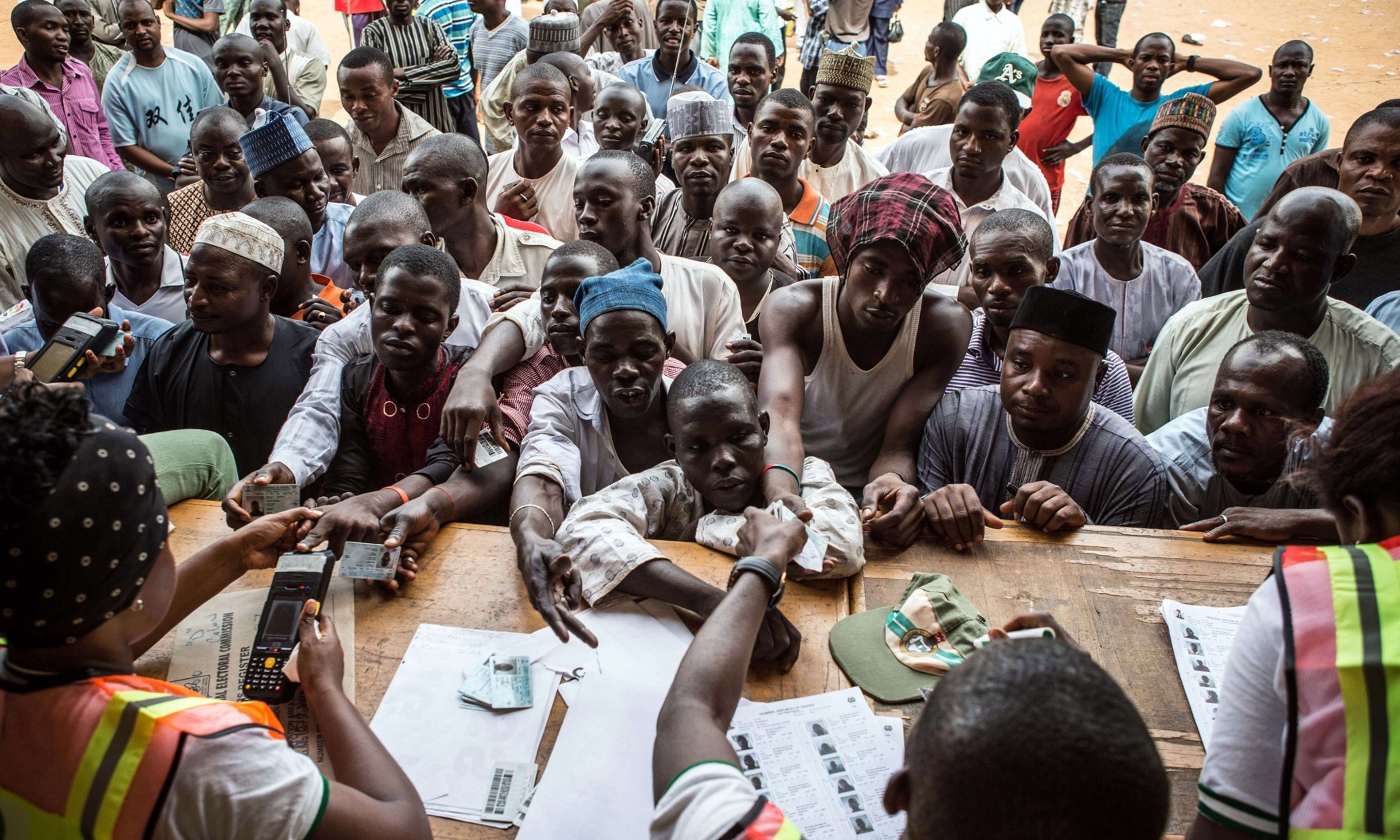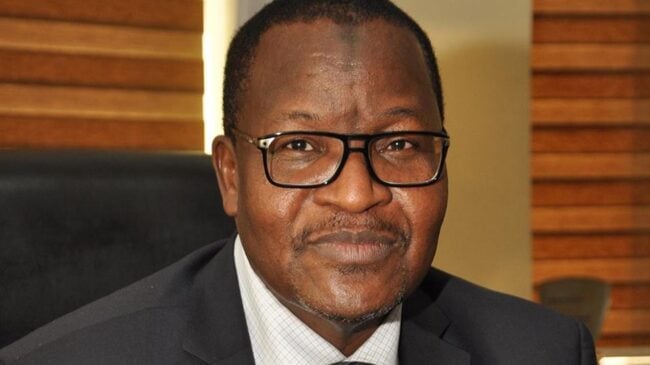UNIBEN student 'dies after being raped inside church'
Just when one thought the issue of rape is becoming a fading crime of yesteryears, several back to back cases witnessed in the past few weeks prove that we may have been in a hurry to make that assertion. To many, the COVID-19 pandemic must have revealed a lot of opportunities for innovations and betterment but for the incessant offenders, it reenergized their passion for rape instead of diminishing it. From the story of 22 years old Uwaila Vera Omozuwa, a student of University of Benin, allegedly raped inside a Church in Benin, to 12 years old Farishina who was alleged to have been repeatedly raped by eleven men on different occasions in Jigawa State, it is one emotionally charged story or the other. The verdict is that we have not made much progress in addressing the issue of sexual violence even when the legal framework is in place to punish and deter those who are involved in it. These recent rape cases have brought to the fore the need to dig deeper to the wider social malaise for which rape is only a symptom. There is doubt if the institutions that make us a decent society are not collapsing at an incredible rate to the extent that nobody can afford to keep quiet and watch while we are all endangered.
In Miss Omozuwa’s case, she had set out for her expected duty as a student – to read – but met an unfortunate ordeal that left her violated and mutilated by a group of boys. She was rushed to the hospital where she eventually gave up the ghost after three days of battling to save her life. While the Church, RCCG, has condemned the attack on Miss Omozuwa and expressed concern that this took place inside its premises, which does not truly reflect the high ethics, moral principles and values it represents, Governor Godwin Obaseki of Edo State has since condemned the dastardly incident and admonished the police to bring the culprits to book. The Inspector General of Police also ordered the deployment of forensic experts to Benin to fish out the culprits and get the law to take its full course. And at the peak of it all, condemnation of the barbaric act came from no less a person than our President.
For Miss Farishina, a 12 year old girl in Limawa in Dutse, Jigawa State, she was only recovered from the fangs of a twelfth man said to be in his mid-50s, who was seen trying to lure her to a secluded area when she had gone to the market. Revelations from her interrogation led to the additional arrest of all 11 men. The case of Miss Barakat, an 18 year student of Institute of Agricultural Research and Training in Ibadan, confuted the thoughts that one is safe at home, as she was violated and mutilated to death right in her father’s house. These gory cases are not the only cases as rape is largely under-reported for several reasons until someone takes the bold step to come out for justice, like the relatives of Miss Jennifer, also 18 year old, who was allegedly attacked and gang-raped by five men in Kaduna, did. Although some men have also been victims of rape and similar sexual violences in the past, the vast majority of victims of rape are women and today, 1 woman in every 45 families have either been sexually harassed or molested at one point in their lives. Generally speaking, many cases don’t get reported for different cultural and social reasons and so may never be investigated.
The most powerful statement in all these, is the uproar of the people who despite the threat of Covid 19, have taken to the streets and social media to protest the rape and death, and are demanding for justice from security agents. The unity of the people in condemning this rape incident clearly shows that it is not a true reflection of who we are. Men and women have risen in unison to express grievances over this case and pray that police will not handle it like several other unresolved rape and murder cases that seem to portray us as a people who do not have any value for life.
Advertisement
Rape, for its traumatic and dehumanizing effect on victims, on its own deserves condemnation of all who means well for society and believes in the dignity of humans. But worse still, the rise in cases of rape is most times a strong statement that the very institutions that make us a modern society have failed to protect the most vulnerable and weak against their brutal offenders. While the tendency to rape is not clearly written on the offenders’ faces, studies have shown that parental childrearing, poor supervision, physical abuse, neglect, and separations from parents are triggers for rape inclinations by persons who have suffered Post-Traumatic Stress Disorder in the past.
In its preamble and substantive provisions, the Constitution of the Federal Republic of Nigeria (CFRN), 1999, provides for our collective confidence as Nigerians in Nigeria. It operates on the “principles of freedom, equality and justice, and for the purpose of consolidating the unity of our people”. Section 33(1) guarantees us a right to life and forbids anyone from wilfully depriving another of this right, except for an executing a court sentence for persons found guilty of a criminal offence in Nigeria. Society, represented by our government and the people, owe us protection against violence, rape inclusive. It is an abominable offence to coerce anyone to an extent he/she unwillingly gives into sexual exploitation, let alone to take a life. And it is worth confronting some of the very many factors that contribute to what is fast becoming a rape culture in our society today.
Arguably, the patrilineal nature of our society has a role to play in the proliferation of rape and violence against the vulnerable ones. It is pitiable that some persons still uphold societal misogyny of traditional gender roles where men and women are expected to appear, behave and do things in the society in different ways. To them, their expectations of men would be powerful and protective creatures while women should be the submissive, caring and maternal. Anything other than these “perceived norms” is usually met with aggression and violence by the ones who feel they have the power to make the others “behave”. Ultimately, most rapists are men who struggle to handle objections to their selfish demands and this toxic masculinity explains why some men believe they can exert their power on, and take undue advantage of their rape victims. The distortions in their cognitive processes make these sexual offenders want to forcefully bed their victims and its painful to note that they actually think that their victims either wanted the rape, or that they deserved it. Nobody deserved such a treatment. Their misperceived cues that the woman has sexual interest in them, or misunderstood message that she does not want to have sex with them is inexcusable.
Advertisement
The problem with this type of society is that the people usually victimize the victims either emotionally, verbally or even physically. Back in the days, child victimising was very common. If a child reports to her parents/guardians that she had been sexually assaulted, besmirched or even had a near-miss, instead of confronting the issue by reporting to the nearest authorities for onward actions, or so, they either blamed and often punished the victims for even being at the place of the incidence. Parents, like adult victims, even under-report these incidences for fear of stigmatisation, further threats of assaults and even for shame. The implication is that you find more and more victims withholding this heinous acts to avoid further victimising and stigmatisation, giving the offenders some false sense that they can get away with the crimes they committed. But could this really be a false sense in its entirety? Perhaps the criminal justice system which is the framework to protect victims which seems to fail us, gives credence to this claim; perhaps not.
The first point of call for victims of crime, rape inclusive, is the police. Policing and police institution seems programmed against rape victims. Why do I assume so? Right from when you appear in a police station to report a case, you are interrogated endlessly which sometimes is either intimidating you, or frustrating you to recall the entry you are about making. You may be asked to buy the paper to record your statement if you are not turned away completely. Victim is visited with lamentations of how the station is not equipped and do not have materials to do their work and eventually discouraged.
Victims are treated with so much disdain, disrespect and insensitivity that 80% are frustrated and abandon the case. In some cases you are asked to accept it that it has happened and you should be careful next time. Amazingly, people live in the shallow denial that rape is an overrated fallacy and women generally lie about rape, or they create excuse to justify its occurrence, and even trivialize such a seriously grievous act. Again the victim becomes the victimised. If the Police manages to accept your case for investigation, investigation of criminal cases is so slow, sometimes pedestrian that you lose total confidence. At the end of the story you encounter more frustration in a police station than getting help to apprehend the culprits of a crime. Naturally, our policing and police practices is the first point that needs total overhaul. I am not oblivious that NIGERIA police is underfunded. Poor policing practices is not peculiar to the case of rape, it simply runs across board and it is partially responsible for why crime thrives. Criminals know that the probability of being caught and investigated is narrow. If the victim is persistent and is lucky to go through the harrowing experience with the police, he or she faces a more difficult case with the prosecution and court trial system.
The way prosecutor handles the case of rape is similar to the way they handle all criminal matters that has made crime prosecution a nightmare to the happiness of criminals. Very often, prosecution comes ill-prepared, with poor gathering of evidence. As I mentioned earlier, most victims are in fear, shock and shame from rape incidents which prevents them from reporting immediately. Sometimes, after days, weeks, months or even years, either on their own or with assistance from support agencies, they brace up and come out to seek justice. When the court focuses solely on physical or forensic evidences, which of course cannot be produced at this time, it frustrates the whole motive which can be very dehumanizing. In some cases, the credibility of the victim becomes the issue instead of the act of rape itself. The court system do not give the victim any form of support or protection. In many cases, the court acquits the accused on flimsy technical reasons. The accused leaves the court emboldened knowing that technically, his action has been endorsed by a society that does not prioritize punishment of criminals and criminality. My friends argue that this is a global problem and in many countries cases of rape hardly progress to court. The argument stems more out of their frustration with institutions of law Enforcement and the court system in Nigeria than the fact that we should accept it as a global problem that will not go away too soon like COVID-19 which is now a catalyst for the latest series of rape cases.
Advertisement
Beyond the failure of police to rise up to criminality in society and courts being proactive in punishing crime, is the fact that our Legislative Arm has not reoriented itself on the changing nature of law making that requires adaptation to local situation. From law making perspective, there is obviously deficit in the punishment and moral sanctioning of rape and sexual violence in our society . Many persons who perpetuate rape faced no legal consequences. There is thus an incentive for the enterprise of rape to thrive. Those who are knowledgeable believes our laws are not stringent enough to deter rapist. The Sexual Harassment in Tertiary Education Institution Bill of 2016 for example, which prescribes a 5 years jail term for sexual offenders in Higher Institutions, and was relegated but revisited in 2019, is yet to pass a third and final hearing. It is amazing that the lawmakers who we entrust our hope on, dilly-dally with such a critical issue that require speedy attention.
However, in some state legislatures different versions of anti- sexual offense Bill has been passed of recent with stringent punishment for offenders, an example, Speaker of the 7th Abia House of Assembly, Rt. Hon. Chinedum Orji introduced two bills in the last quarter of 2019. One of the two bills which was passed into law, The Violence Against Persons Prohibition Bill” spelt out punitive measures for all forms of violence against persons including without limitations, spousal violence, parental/guardian violence, sexual violence, etc. We can take a cue from this and introduce similar bills that protect our most vulnerable from these offenders. However, there is congruent need to rescue our nation from the bigger rape existing among us. I will discuss this in the sequential edition next week.
Views expressed by contributors are strictly personal and not of TheCable.
Add a comment







